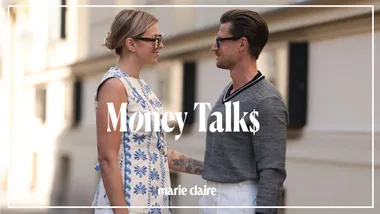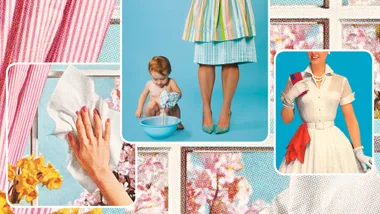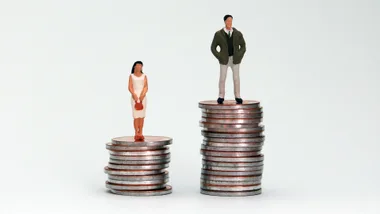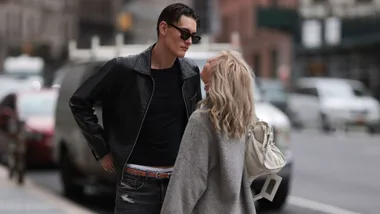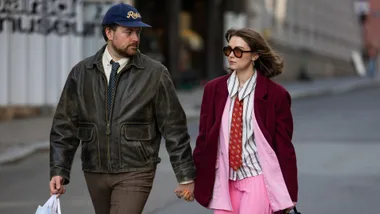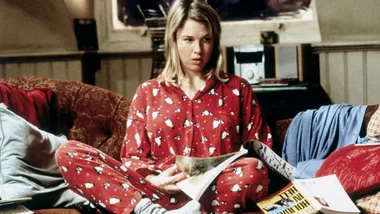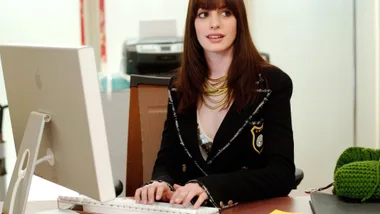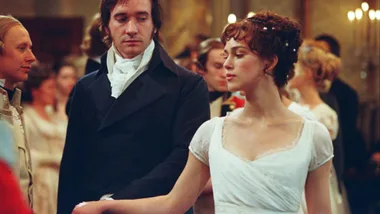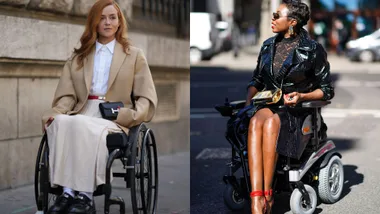There’s an age-old sentiment that if you ‘love what you do you’ll never work a day in your life.’ However, unless you’ve landed yourself a career as a high coveted ice cream taster or a professional mattress jumper (yes, these are real jobs), this sentiment doesn’t exactly ring true. To find out the secret to success, marie claire sat down with three industry change makers who are rewriting the blueprint for a new world of work. The goal? Work hard, challenge the system and leave the planet a little lighter in the process.
THE PASSION PROJECT:
TINA ELIAS, FOUNDER OF UPPAREL
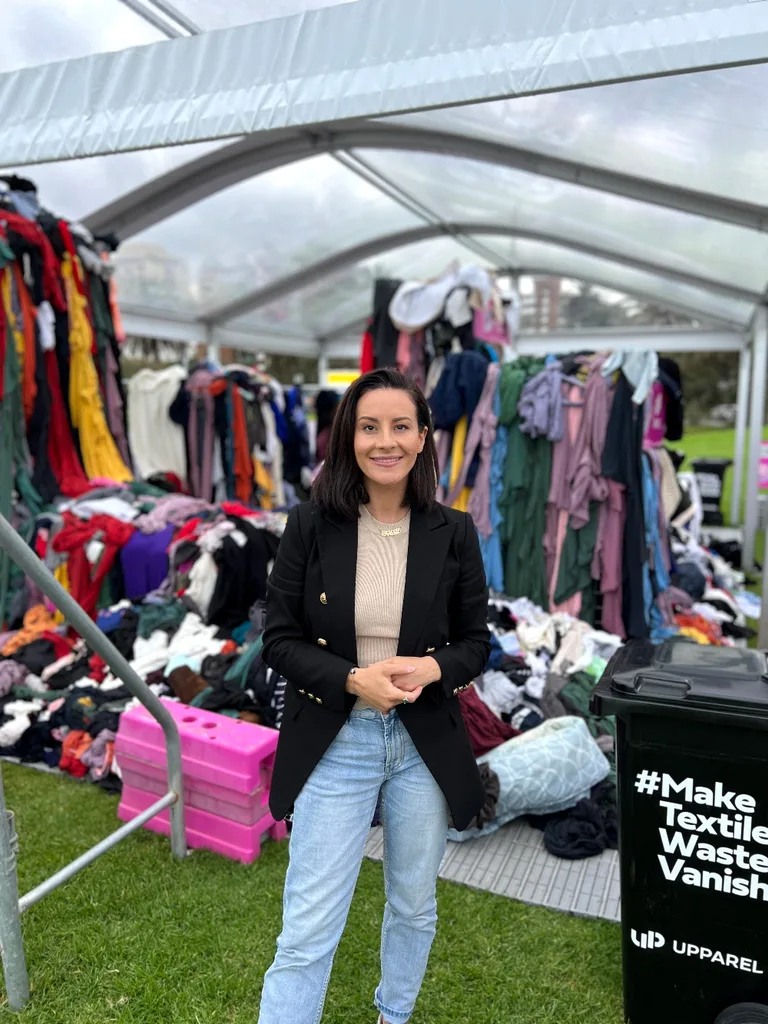
“When I was at home looking after our nine-month-old baby, my husband Michael was working at one of the big four banks. He would wear these fun, quirky socks to work that were a huge conversation starter. I was bored at home, so I decided to launch a sock brand. We had tens of thousands of subscribers, and delivered to more than 70 countries. Michael eventually left his bank job to work with me full-time.
One day he was clearing out his sock drawer and said, ‘Where should I put these?’ We realised that you can’t send second-hand socks to charity because they’re worn and you [shouldn’t] put them in the bin. That sparked the idea of launching the world’s first sock take-back program, where we not only took back the socks we sold, but accepted every other sock brand as well. In four months we diverted more than 15,000 kilograms of socks from landfill.
We had such an engaged community in Australia and they were saying, ‘Why
can’t we send you other textiles too?’ So we broadened our scope, and since 2020 we’ve diverted more than 4.5 million textiles from landfill through our business Upparel.
The best thing about my job is that we are a purpose-driven brand. I have three kids and what we do today is for the next generation.
It’s so rewarding when other companies ask how they can get involved. For example, we’ve partnered with Vanish Australia in pledging to divert one million clothing items from landfill over two years to help #Make- TextileWasteVanish. It’s a nice feeling to know you can make a difference.”
THE PURPOSE CONVERT:
RENEE COSGRAVE, GENERAL MANAGER OF STELLA INSURANCE
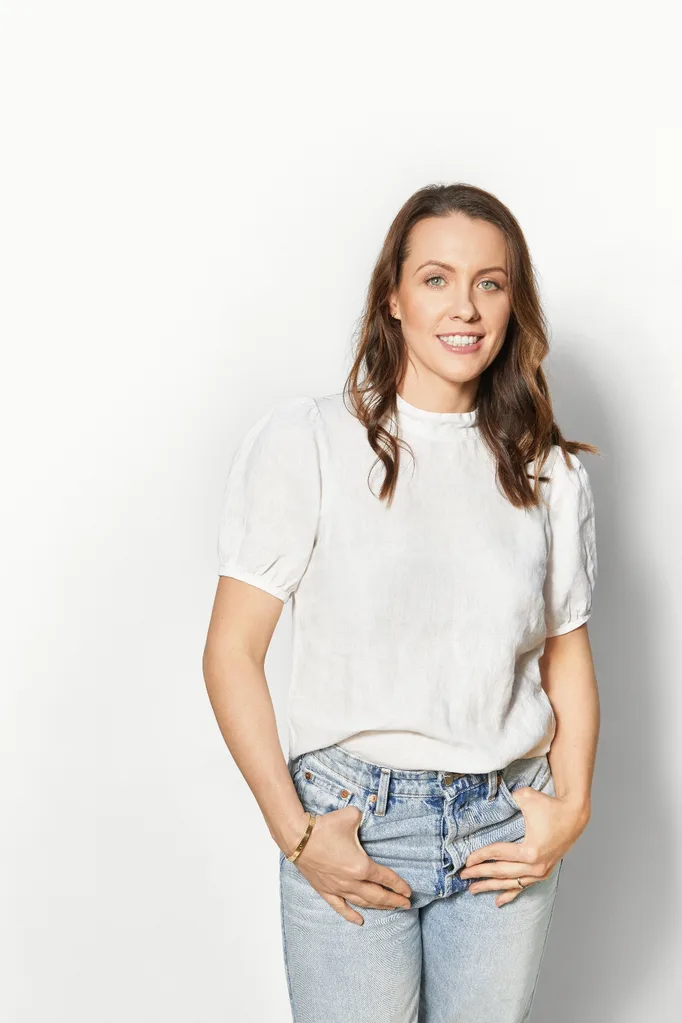
“I’ve spent the past 20 years working in financial services. It can be so easy to get caught up in the money and prestige of a known company or the title of a role, but the shine of those things only lasts so long. Instead, think about what you value and what will motivate you to get out of bed every morning for years to come.
Working for Stella wasn’t a change in industry, but it was definitely a change in the way of doing business. [It’s about] being involved with a brand that’s purpose driven and more than just profits –
[as it’s] supporting women. Being involved in the business [has meant] I’ve become more educated on issues that affect women. I’m not a hardcore feminist but having two daughters has definitely changed the way I view the world and what girls can do and be.
One of the things about my job that I’m most proud of is our partnership with the Women’s & Girls’ Emergency Centre (WAGEC). Domestic violence in Australia is a problem that is beyond comprehension, and I think it’s impressive that even though we’re in the startup phase, we are committed to giving $5 from every [new car insurance] policy upfront to a great cause … every little bit will help.”
THE LONGTIME CHANGEMAKER:
MOLLY HARRISS OLSON, CEO OF FAIRTRADE
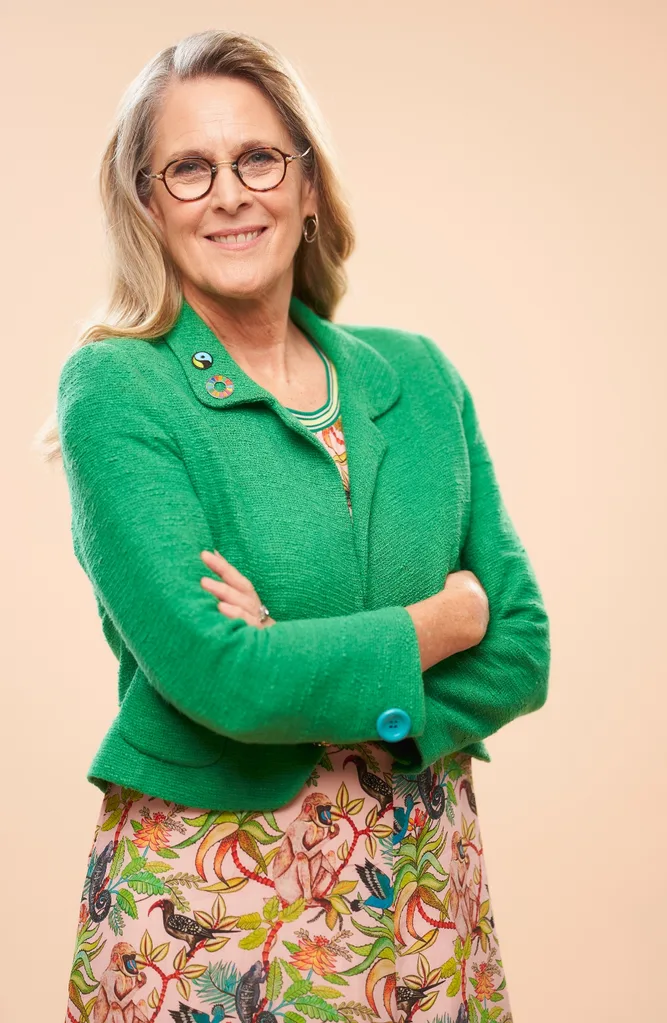
“When I was 18, a nuclear power plant called ‘Three Mile Island’ near the university I was attending [in the US] blew up. That really brought my awareness to the environmental issues around me.
My first job was at Greenpeace, where I ran a campaign to stop oil drilling. As a result, BHP attempted to personally sue me, which as a twenty-something was pretty scary. I realised out there on the high seas the actions we were taking were not helping BHP to understand the problem, instead it was causing them to react very badly.
So I left Greenpeace and went to Washington, where I ended up running the council on sustainable development at the White House. The mission that the president established for us was to come up with a report on achieving a sustainable America. It was a complete oxymoron: nobody could even define sustainable development, much less understand what it meant in their company. Today, the world’s very different. That said, 99 per cent of what’s being done is just at the margins. What I find so valuable about Fairtrade is they have a really impactful systemic and structurally engineered approach to a voluntary system. You know, nobody is forced to do Fairtrade.
It’s said that some people have a job, some have a career, and some people have a calling. I definitely experienced that calling. I’ve always been driven by passion. This work can be very depressing because we don’t know the outcome. But I will say that you sleep better at night when you know you are spending every day doing your best.”
This story origionally appeared in the June issue of marie claire Austrlia.

